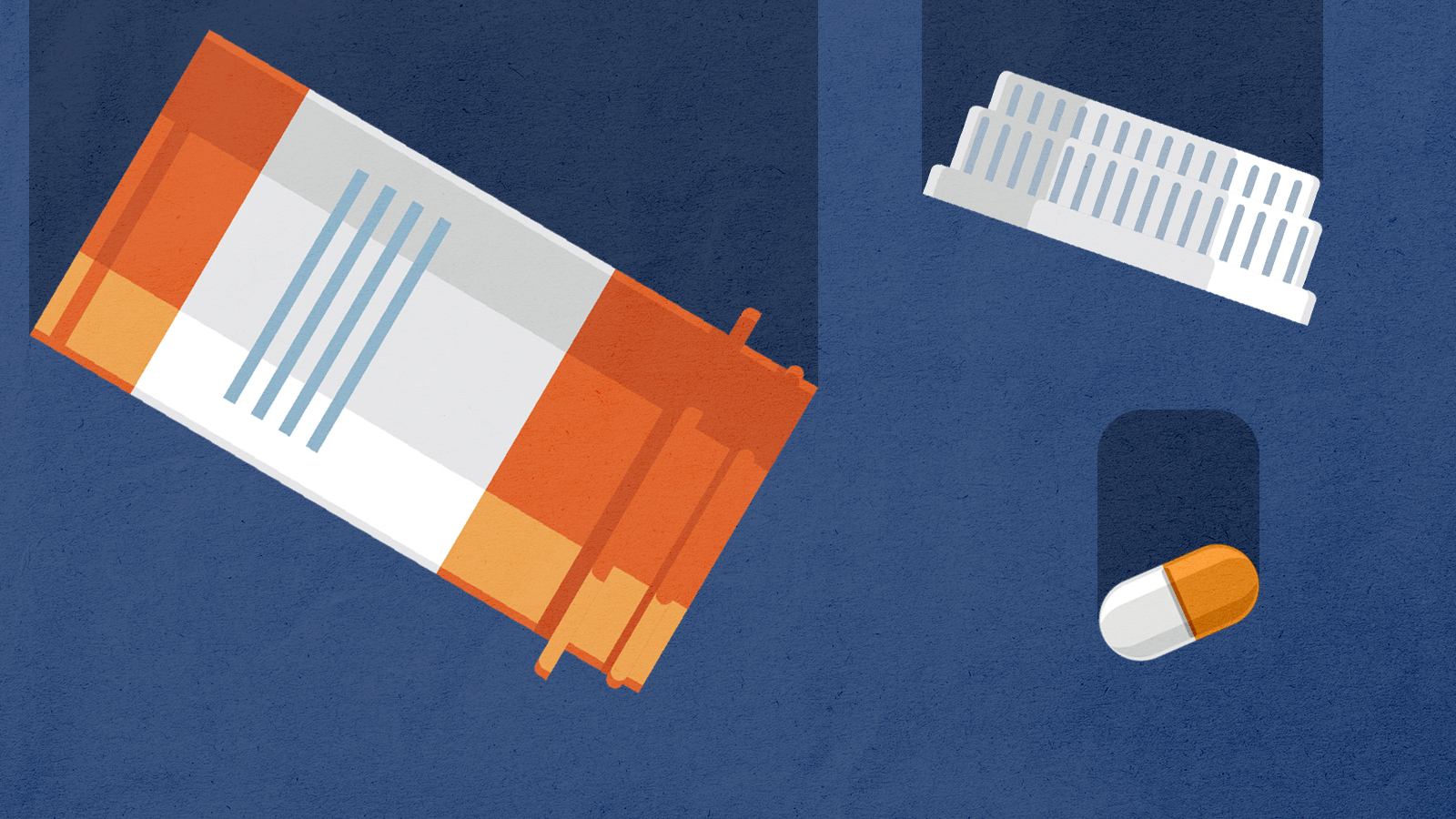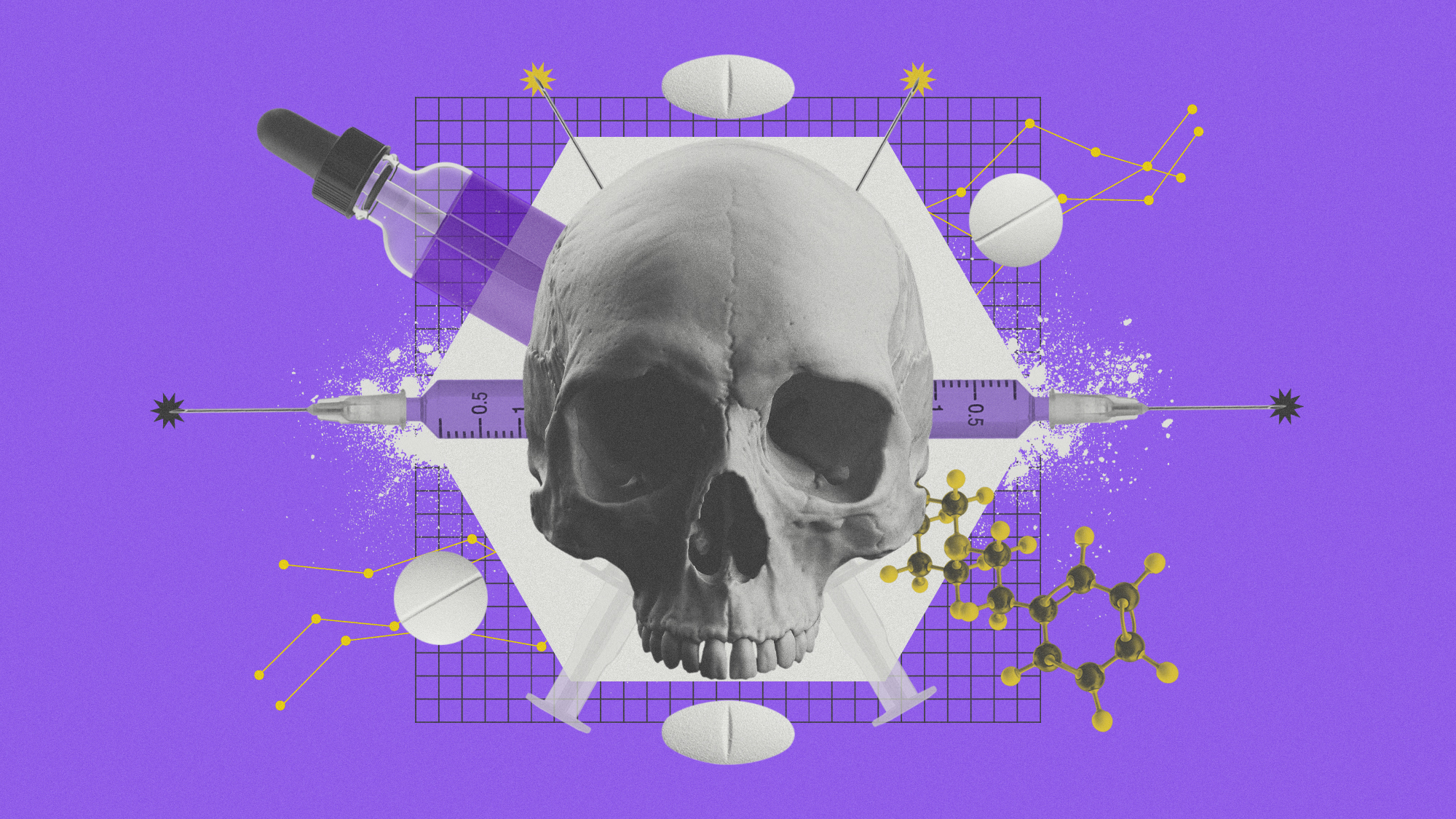How did the U.S. find itself in an Adderall shortage?
The many factors at play, and what it means for patients who rely on the drug


A free daily email with the biggest news stories of the day – and the best features from TheWeek.com
You are now subscribed
Your newsletter sign-up was successful
Since last fall, the United States has been experiencing a nationwide shortage of Adderall, a stimulant used to treat attention deficit hyperactivity disorder (ADHD). Demand for the medication has surged over the last few years, and production limits implemented in response to the opioid crisis are only further complicating access for pharmacists and patients.
What is causing the shortage?
Though the country is facing several drug shortages, "the explanation for the persistent Adderall shortage is more complicated," Dylan Scott writes for Vox. While companies initially pointed to manufacturing problems, "the picture has muddied over the past few months." Now, the affected manufacturers say increased demand and a shortage of the active ingredient, which comes as a result of how the Drug Enforcement Administration regulates Aderall production, are to blame.
At the beginning of the COVID-19 pandemic, regulations around the prescription of controlled substances were relaxed. New rules allowed doctors to prescribe stimulants online without an initial in-person evaluation, leading to a surge in demand. Soon, several online therapy start-ups began heavily advertising their ability to diagnose ADHD on social media platforms like TikTok and Instagram, The New York Times reports. One such company, Cerebral Inc., promised quick, accessible, and entirely online access to psychiatric care and prescription medicine. In May 2022, the company received a grand jury subpoena from the U.S. attorney's office after reports that clinicians were being pressured to prescribe stimulants prompted an investigation.
The Week
Escape your echo chamber. Get the facts behind the news, plus analysis from multiple perspectives.

Sign up for The Week's Free Newsletters
From our morning news briefing to a weekly Good News Newsletter, get the best of The Week delivered directly to your inbox.
From our morning news briefing to a weekly Good News Newsletter, get the best of The Week delivered directly to your inbox.
Meanwhile, a settlement reached in lawsuits linked to the prescription opioid crisis now requires the DEA to limit the amount of product drugmakers can produce in a specific period. The agreement also bars manufacturers from telling pharmacies exactly what those thresholds are, "how they're determined, or when the pharmacy is getting close to hitting them," Bloomberg explains. But pharmacists worry the limits are negatively impacting people with legitimate prescriptions for other controlled medications — like Adderall — and creating a headache for patients in need.
How have ADHD diagnosis trends changed in recent years?
The rate of Adderall use in the U.S. has been on an upward trend for the past two decades, according to the Times. Between 2006 and 2016, prescriptions for stimulants to treat ADHD multiplied by 2.5. Health research firm IQVIA found that 41.4 million Adderall prescriptions were filled in 2021, a 10 percent increase from the previous year, per Axios.
Many adult women have been diagnosed with ADHD in recent years. During a conference for psychiatric nurses, Pamela Wall, Ph.D., named implicit bias as one of the main reasons women tend to be diagnosed later in life. Wall also mentioned that an increased understanding of the disorder has prompted more adult diagnoses. The Centers for Disease Control and Prevention found that between 2005 and 2013, the percentage of "privately insured reproductive-age women" filling prescriptions for ADHD medicines rose 344 percent.
Margaret Sibley, associate professor of psychiatry and behavioral sciences at the University of Washington School of Medicine, told the Times that, over the last few decades, ADHD medication has been marketed more aggressively by pharmaceutical companies. The ads have led to an increase in adults identifying with the symptoms and subsequently seeking treatment for ADHD.
A free daily email with the biggest news stories of the day – and the best features from TheWeek.com
How are patients coping with the Adderall shortage?
Experts fear the shortage could lead to a public health crisis, seeing as many people who take Adderall rely on the medication daily and may be unprepared to unexpectedly lose access.
Not all patients who stop taking Adderall experience withdrawal, experts say. Those that do, however, can face a host of symptoms, including "mood swings, irritability, appetite suppression, and, in severe cases, suicidal thoughts." Some patients have turned to rationing their pills or driving hours and hours to find a pharmacy that carries them.
Experts also warn that patients could turn to illicit drugs or unregulated sources to self-medicate, which could cause an increase in overdose cases, Wired says. Leo Beletsky, an epidemiologist, told Wired: "If you have lots of people moving at the same time from the pharmaceutical market to the illicit market, lots of bad things can happen. Conditions are very much ripe for that to happen here."
In an opinion article for the Los Angeles Times, Dr. Beletsky warns that the country is "facing a real possibility of a public health disaster on a scale not seen since the prescription opioid crisis that began a decade ago." He said the Adderall shortage poses a similar threat: "For those losing adequate access to prescription amphetamine, illicit alternatives — especially methamphetamine — are readily available."
Doctors believe the response from government agencies and public health leaders has not been urgent enough. Primary care physician Eric Kutscher, who has researched stimulant use disorders, argues the FDA needs to provide better guidelines for alternative care that doctors can offer their patients.
"There should be no reason that a patient who was previously stable on Adderall doesn't get some sort of replacement therapy, whether it's another short-acting stimulant or a long-acting stimulant that can tide them over and provide at least some degree of symptomatic support," he told Wired.
Updated May 12, 2023: This piece has been updated throughout to reflect recent developments.
Theara Coleman has worked as a staff writer at The Week since September 2022. She frequently writes about technology, education, literature and general news. She was previously a contributing writer and assistant editor at Honeysuckle Magazine, where she covered racial politics and cannabis industry news.
-
 Ex-South Korean leader gets life sentence for insurrection
Ex-South Korean leader gets life sentence for insurrectionSpeed Read South Korean President Yoon Suk Yeol was sentenced to life in prison over his declaration of martial law in 2024
-
 At least 8 dead in California’s deadliest avalanche
At least 8 dead in California’s deadliest avalancheSpeed Read The avalanche near Lake Tahoe was the deadliest in modern California history and the worst in the US since 1981
-
 Political cartoons for February 19
Political cartoons for February 19Cartoons Thursday’s political cartoons include a suspicious package, a piece of the cake, and more
-
 A fentanyl vaccine may be on the horizon
A fentanyl vaccine may be on the horizonUnder the radar Taking a serious jab at the opioid epidemic
-
 Stopping GLP-1s raises complicated questions for pregnancy
Stopping GLP-1s raises complicated questions for pregnancyThe Explainer Stopping the medication could be risky during pregnancy, but there is more to the story to be uncovered
-
 Nitazene is quietly increasing opioid deaths
Nitazene is quietly increasing opioid deathsThe explainer The drug is usually consumed accidentally
-
 Tips for surviving loneliness during the holiday season — with or without people
Tips for surviving loneliness during the holiday season — with or without peoplethe week recommends Solitude is different from loneliness
-
 More women are using more testosterone despite limited research
More women are using more testosterone despite limited researchThe explainer There is no FDA-approved testosterone product for women
-
 Climate change is getting under our skin
Climate change is getting under our skinUnder the radar Skin conditions are worsening because of warming temperatures
-
 Can TrumpRx really lower drug prices?
Can TrumpRx really lower drug prices?Today’s Big Question Pfizer’s deal with Trump sent drugmaker stocks higher
-
 The UK’s opioid crisis: why the stats don’t add up
The UK’s opioid crisis: why the stats don’t add upThe Explainer A new report has revealed that the UK’s total of opioid-related deaths could be much greater than official figures show
